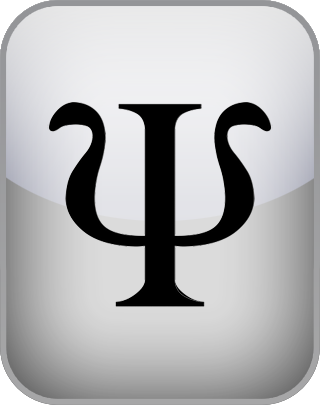Academisch beoordeeld door Dr. Jennifer Schulz, Ph.D., universitair hoofddocent psychologie
Persoonlijkheidsstijltest
Deze Persoonlijkheidsstijltest met 105 vragen zal je in staat stellen je scores voor de 15 persoonlijkheidsstijlen te verkrijgen. De persoonlijkheidsstijlen vertegenwoordigen een dynamisch en vloeiender aspect van de persoonlijkheid dan de meer structurele eigenschappen gemeten door de Jung-Type-Test of de Big Five-Test.
Bij het invullen van de vragenlijst is het normaal dat goed functionerende individuen het gevoel hebben dat meerdere van de items bij hen passen. Klik voor optimale resultaten bij een vraag echter NIET op ‘Akkoord’, tenzij dit een terugkerend thema in je leven is. Indien je niet zeker bent of een gegeven uitspraak bij je past, klik dan gewoon op ‘Niet akkoord.’
Vraag 1 van 105
Ik ben meestal alleen en dat is geen probleem voor mij.
VOLGENDE
De "Persoonlijkheidsstijltest" is eigendom van IDR Labs International, maar een eerbetoon aan het werk van Theodore Millon, Seth Grossman, Aaron T. Beck, Arthur Freeman en Nancy McWilliams.
The Personality Style Test, based on the research of Dr. Theodore Millon, is a psychological assessment designed to identify and categorize various personality traits and styles. Millon’s pioneering work in personality theory has provided a comprehensive framework for understanding how individual personalities develop, adapt, and sometimes become maladaptive. His model emphasizes that personality is not static but exists on a continuum, with certain traits manifesting in healthier or more dysfunctional ways depending on life circumstances, coping mechanisms, and other factors.
Dr. Millon’s research is rooted in the idea that personality styles are patterns of thinking, feeling, and behaving that individuals use to interact with the world. Unlike traditional models that focus solely on pathological traits, Millon’s approach recognizes that everyone has a blend of personality characteristics that can be adaptive or problematic depending on context. His work on personality is best known for its application in understanding personality disorders, but the Personality Style Test goes beyond pathology to examine how various personality traits manifest across the population.
Millon identified several distinct personality styles, many of which align with broader categories of personality functioning. These styles are mapped along dimensions of interpersonal relationships, emotional expression, and coping strategies. For example:
Compulsive Personality Style: Characterized by a need for order, control, and perfectionism. Individuals with this style are highly disciplined, but they may also struggle with rigidity and difficulty adapting to change.
Dependent Personality Style: Marked by a deep need for approval and support from others, individuals with this style may have difficulty making decisions or functioning independently, relying heavily on close relationships for guidance.
Histrionic Personality Style: Defined by an intense need for attention and approval, people with this style often exhibit dramatic, emotional behaviors and seek validation through social interactions.
Narcissistic Personality Style: Associated with a strong sense of self-importance, individuals with this style often focus on their own needs and seek admiration, but they may struggle with empathy and close relationships.
Millon’s Personality Style Test also includes other styles, such as avoidant, schizoid, and aggressive styles, each highlighting different ways individuals interact with their environments and relationships. The test reveals which personality traits are dominant in an individual’s psychological makeup, offering insights into how these traits influence behavior, decision-making, and interpersonal relationships.
A key aspect of Millon’s work is the understanding that personality styles exist on a spectrum. While someone may exhibit traits associated with a personality disorder, they can still function adaptively if these traits are balanced and not extreme. Conversely, when these traits become rigid or exaggerated, they can lead to maladaptive behaviors and psychological distress.
In summary, the Personality Style Test based on Millon’s research offers a nuanced view of human personality, recognizing the complex blend of traits that define how individuals interact with the world. It’s an essential tool for clinicians and researchers alike, providing valuable insights into both healthy and problematic personality styles.
Hoewel deze test kan helpen de omvang van je scores op de verschillende schalen van de 15 persoonlijkheidsstijlen te meten, is het belangrijk te weten dat deze testscores niet per se te vertalen zijn naar levensechte beoordelingen, zoals uitgevoerd door erkend medisch personeel met de deelnemer fysiek aanwezig en gebaseerd op een uitgebreide beoordeling van onder andere de persoonlijke en familiegeschiedenis van de deelnemer.
Als zodanig, merk alsjeblieft op dat de informatie die door deze website verstrekt wordt enkel psychologische informatie voor educatieve doeleinden verstrekt. De informatie wordt “op zich” verstrekt en kan geen professionele dienst of garantie zijn. De uitgever is niet betrokken bij het verlenen van juridische, medische, financiële of andere professionele diensten. Indien deskundige hulp nodig is, gelieve elders professionele dienstverlening te zoeken.
De "Persoonlijkheidsstijltest"© is eigendom van IDR Labs International. Gelieve onze Servicevoorwaarden te raadplegen voor meer informatie.

 English
English  Español
Español  Português
Português  Deutsch
Deutsch  Français
Français  Italiano
Italiano  Nederlands
Nederlands  Polski
Polski  Українська
Українська  Русский
Русский  Türkçe
Türkçe  العربية
العربية  日本語
日本語  한국어
한국어  ไทย
ไทย  汉语
汉语 